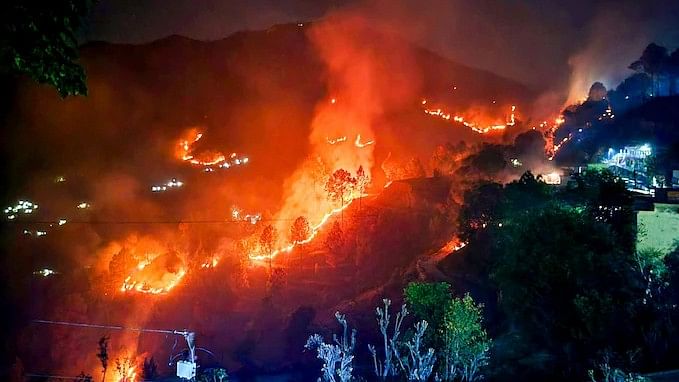As Uttarakhand grapples with the recurring threat of forest fires, it is clear that a change in approach is necessary to protect the region’s ecological heritage. Recent incidents of wildfires underline the urgent need for proactive policies and collective action to reduce the devastating impact of these fires on our forests, wildlife and communities.
Climate change is a major driver of wildfires, increasing favorable conditions for fires to occur and spread. To tackle this underlying threat, policy makers should prioritize implementing sustainable land management practices. Regulations mandating controlled burning and vegetation management can effectively reduce the accumulation of flammable materials in forested areas, reducing wildfire risk and increasing ecosystem resilience.
Yet, combating wildfires requires more than environmental management. This demands utmost vigilance and public awareness. From unattended campfires to deliberate arson, human activities remain the primary ignition source for wildfires.
Additionally, enforcement efforts should be strengthened to prevent illegal activities that fuel wildfires. Better collaboration between government agencies, local communities and stakeholders is necessary to effectively coordinate wildfire prevention and response efforts. By fostering a culture of compliance and collaboration, we can address the root causes of wildfires and ensure an integrated approach to wildfire management.
As the fight against fires rages on, the conservation of Uttarakhand’s natural heritage hangs in the balance. From leveraging technological advances in firefighting to promoting community resilience, our response to wildfires must be comprehensive and proactive. Only through sustained collective action can we fortify our forests against the ravages of wildfire, and preserve their splendor for future generations. Now is the time for policy makers, communities and individuals to heed this call and unite in protecting the forests of Uttarakhand.
(Anjal Prakash is Clinical Associate Professor (Research) at the Bharti Institute of Public Policy, Indian School of Business (ISB). He teaches sustainability at ISB and contributes to IPCC reports. This is an opinion and the views expressed are those of the author The Quint neither endorses nor is responsible for them.)


